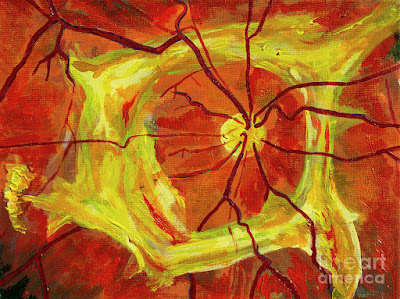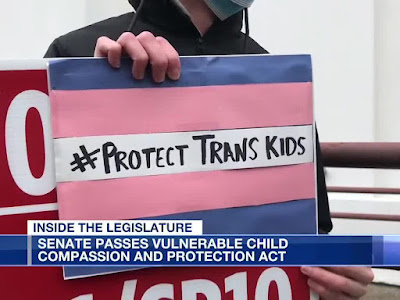by Richard Fox
I.
Suit up like an astronaut exploring a poison planet.
Fasten a fabric mask over my mouth and nose.
Mount a helmet with face shield on my head.
Slip harness on Bailey, snap leash into clip.
Slide on latex gloves. Turn the key, open door.
Step into the airlock disguised as porch.
Morning walk. few wear protective gear.
Neighbors stroll elbow-to-elbow, whisper in ears.
Bailey receives greetings. For me—smiles, smirks.
My steps set a meter. Words dance into lines.
Bailey stops to sniff. I memorize a stanza.
Laughter shatters my reverie.
A teen girl yells, No way anybody’s quarantining me.
Three families surround her, lips uncovered.
Kids play tag, mark IT by rolling on the lawn.
II.
March into the hospital, obey taped lines, six feet apart.
Nurse takes my temperature. Asks screening questions.
Disinfects my hands. Double-checks my mask.
The long lobby—chairs, tables barren.
One person to an elevator.
Approaching patients hug opposite walls.
Podiatrist’s waiting room. Three out of four chairs blocked.
We may sit, satisfactorily spaced, sucking air through masks.
The coatrack, verboten. No magazines or solitary games.
Exam room surfaces shine, sealed sterile packets covered.
Nurse removes my protective sandals, socks.
Puts a spacer next to my right big toe.
The doctor rolls near, picks at a cuticle.
Pus leaking out from under nail. Infected. Must remove.
He disinfects, injects, waits for lidocaine to numb.
Hey doc, thanks for seeing me. This is my big day out.
He grins. You’re keeping me in business. The wards are empty.
Even the COVID-19 unit has fewer beds filled.
He begins cutting, yanking the nail. Patients refuse to come
to the hospital for critical tests. Friend of mine, cardiologist, lost
a patient yesterday. Guy kept postponing appointments.
My friend begged him to come in. Safe here. It’s all statistics.
What will kill you first. Patient died at home. Massive MI.
Podiatrist bandages my wound.
III.
Home, my couch. Prop foot up on pillows. Read the Post:
people—me—with malignancies in lungs, three times
more likely to die from Coronavirus. Time for supper.
When not writing about rock ’n roll or youthful transgressions, Richard Fox focuses on cancer from the patient’s point of view drawing on hope, humor, and unforeseen gifts. He is the author of four poetry collections and the winner of the 2017 Frank O’Hara Prize.









